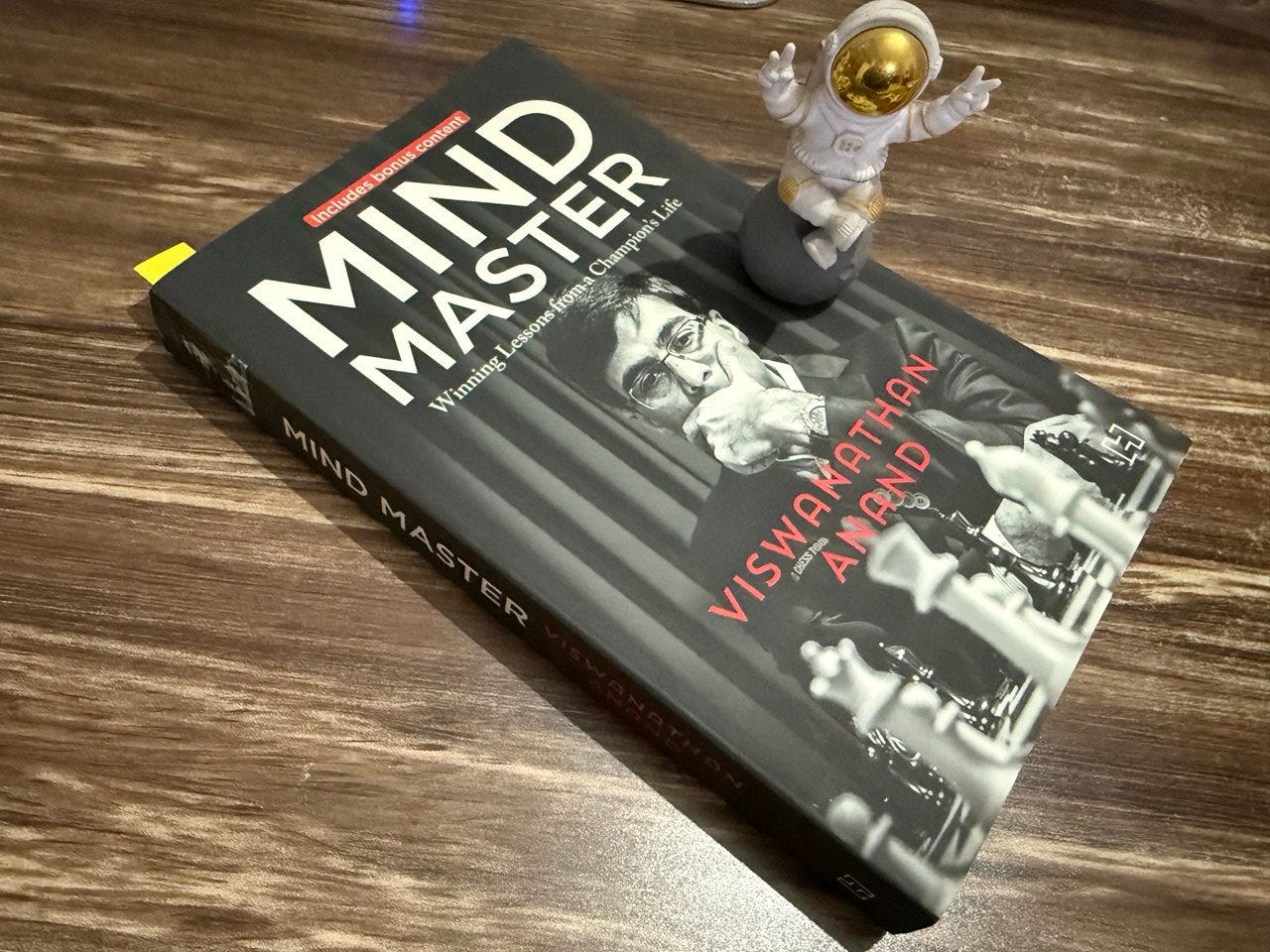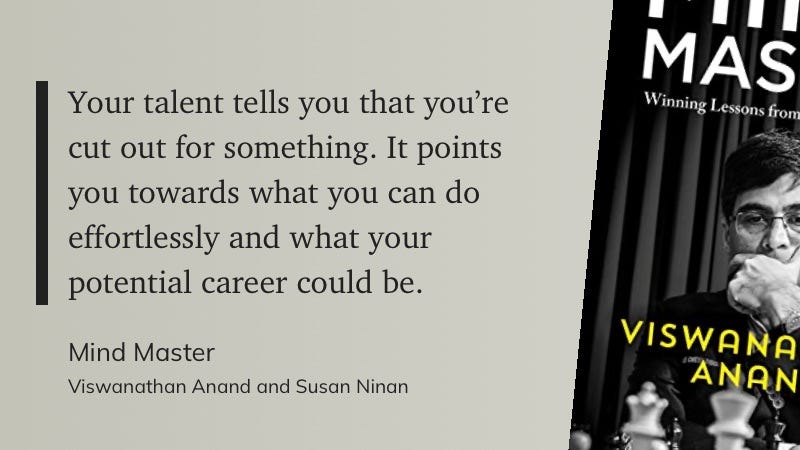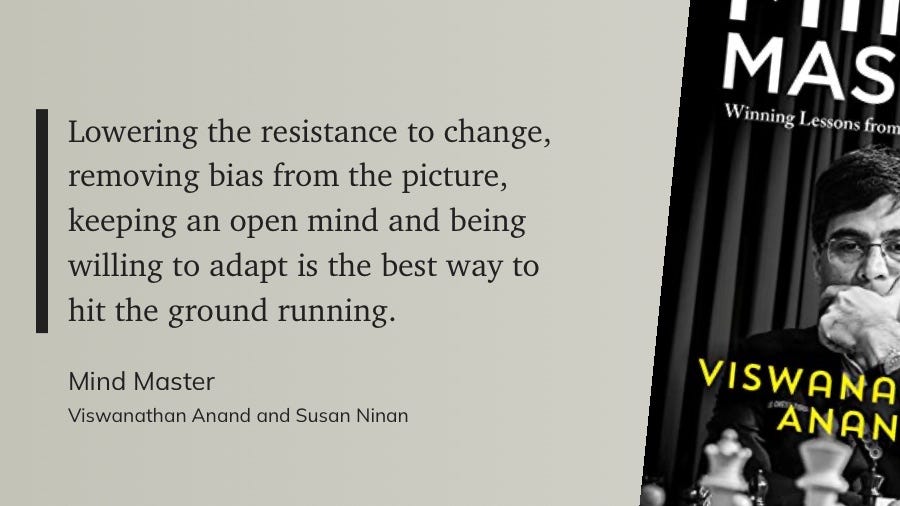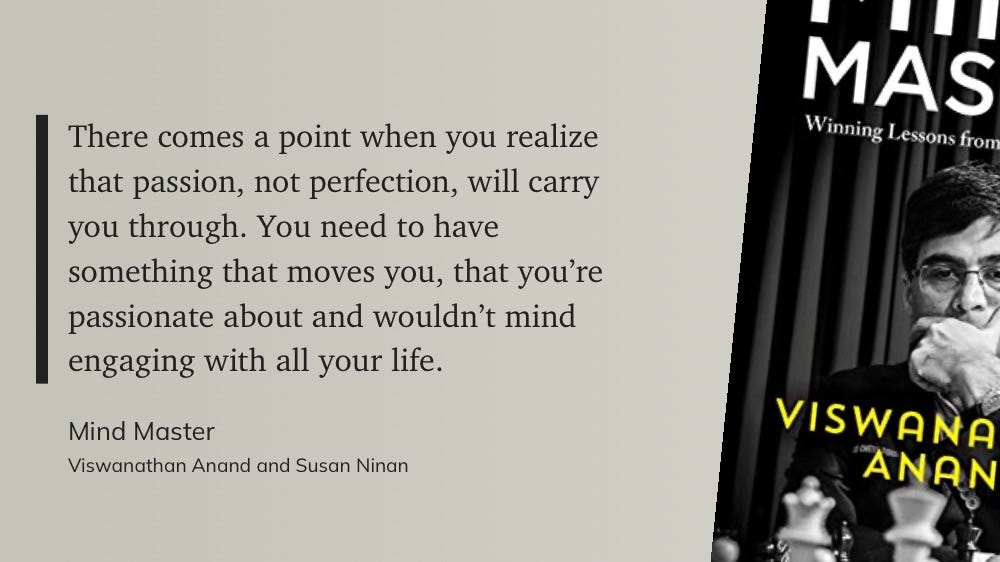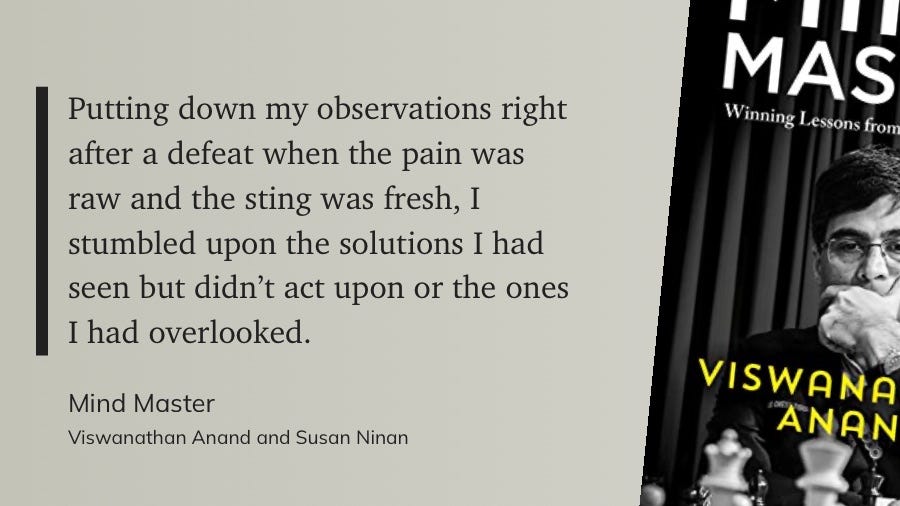Rating: ⭐️⭐️⭐️⭐️ (4 out of 5)
I'm biased towards autobiographies, and when one of them is about Chess, & the author's name is Viswanathan Anand, I'm sure from the start that the book will not disappoint. Just like Chess, trading is also a sport, and all the wisdom imparted in this book holds true for trading or any other aspect of life.
Here are some concepts that the book impresses upon:
Picking the right choices
"when something intuitively makes sense to you and immediately grabs your attention; it comes at you leaping and lunging, and lodges itself in your mind."
Again, the concept of “effortlessness” comes before me. This has become the key criterion for making active trading decisions for me. If it isn’t effortless, it isn’t worth proceeding with.
Keeping an open mind
"Dogmas and judgements, I’ve learnt, must be shed in favour of facts. This has allowed me to become more open-minded and occasionally re-evaluate my views. It’s helped me evolve and stay relevant through every wave of change."
Embrace change. Stay flexible. Adapt.
Passion is the primary driver
“Just keep the voice of your dream alive in your head and the will on a simmer in your heart."
As I’ve always maintained, there must be an unwavering fire burning within your heart; otherwise, mediocrity will be the most probable consequence of your life.
Journaling
He emphasizes writing down his impressions immediately after a game, specifically after a loss. But after a win, he gives himself some time and refrains from journaling a little longer. Very interesting.
The book is full of such wisdom. When it’s from a person who’s “been there” and shares his life experiences, it instantly becomes worth recommending.
I’ll end the post with a couple of powerful quotes:
"Giving yourself time to recover emotionally is worth much more than the flash of a great idea."
“Strategy can’t compensate for mistakes in execution."
"The way I see it, talent is a lot like a plant. When it’s watered with hard work, it grows, branches out and blooms."
"Sometimes when your hand wants to make the move and you can’t take the tension any more, you end up playing the move even if your brain is trying to stop you. Between giving in to the temptation and allowing yourself to pause and think is the moment that decides whether the game will be a straight-out draw or a neat win."





